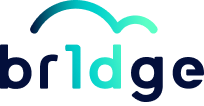Advanced Technologies & Treatments for Diabetes (ATTD)
Category: Congress
Join leading experts for an interactive BR1DGE medical education symposium that explores how future advancements in technology can address current challenges in the detection and management of T1D.
BR1DGE TO THE FUTURE: Exploring How Innovation Can Evolve the Early Detection and Management of T1D
AGENDA
- 16:40–16:48 - Welcome and Introduction (Chantal Mathieu – CHAIR)
- 16:48–17:08 - What Does the Future Of Islet Autoantibody Screening Technology Look Like? (Daniel Agardh)
- 17:08–17:28 - Real-world Implementation of AI to T1D Screening (Gun Forsander)
- 17:28–17:48 - What’s On The Horizon for T1D Management? (Chantal Mathieu)
- 17:48–18:08 - Leave Nobody Behind: Early Detection and Diagnosis of T1D in Adults (Jeremy Pettus)
- 18:08–18:10 - Summary: What Do You Think T1D Management Looks Like in 20 Years’ Time? (All Faculty)
MEETING OBJECTIVES
- Explore the current landscape and benefits associated with early detection of T1D as well as key challenges and unmet needs
- Discuss how innovations in islet autoantibody screening techniques, artificial intelligence, and machine learning may enhance the benefits associated with early detection in the future
- Review emerging investigational treatments in T1D and how these may impact T1D management in the future
- Discuss current challenges in the early detection and diagnosis of T1D in adults
SYMPOSIUM OVERVIEW
Join leading experts for an interactive BR1DGE medical education symposium that explores how future advancements in technology can address current challenges in the detection and management of T1D.
Session 1 will unveil the potential benefits of early T1D detection through islet autoantibody (IAb) screening. Session 2 will discuss current IAb screening techniques and highlight novel research that has the potential to support large-scale testing of testing to a general population level. Session 3 will examine the potential implementation of artificial intelligence to early T1D detection programs. Session 4 will discuss the latest clinical research on potential treatments, as well as novel technological approaches that could reshape the future of T1D care. Session 5 will address the unique challenges of early T1D detection in adults, including current and future strategies for differential diagnosis at clinical onset to reduce the risk of misdiagnosis.
Each session will conclude with a dedicated Q&A, where attendees can submit questions to the expert faculty.
